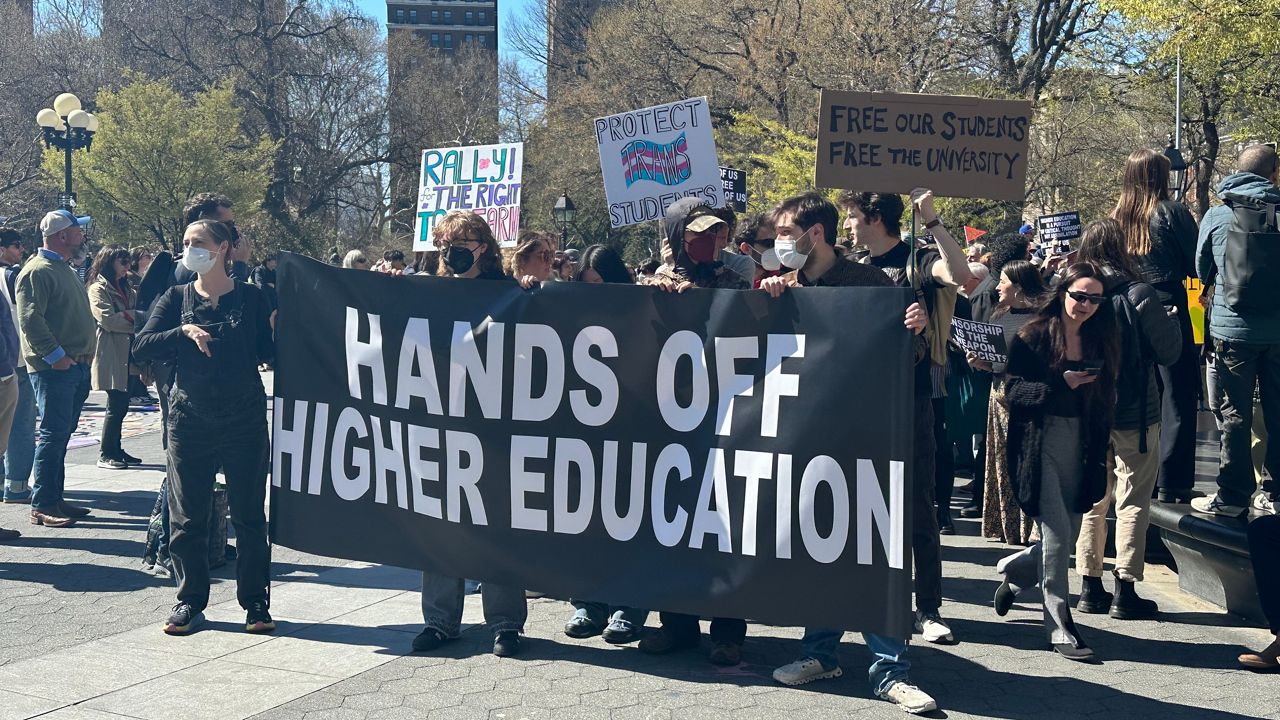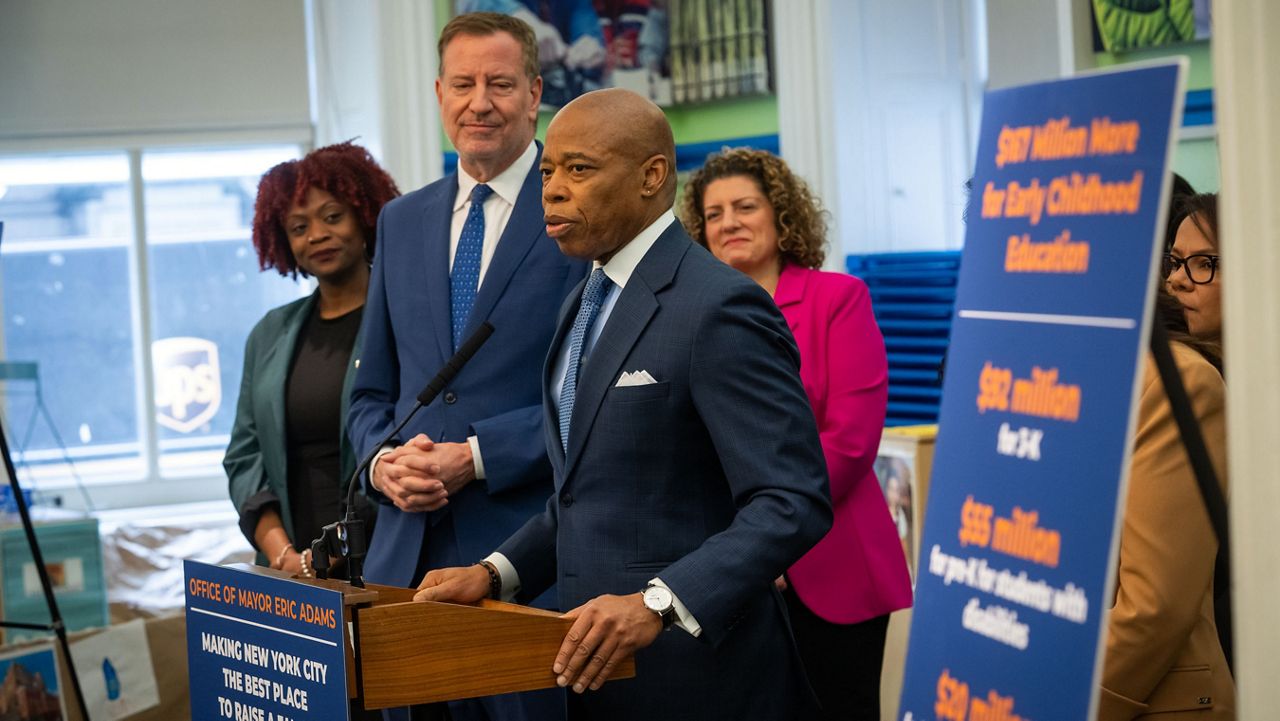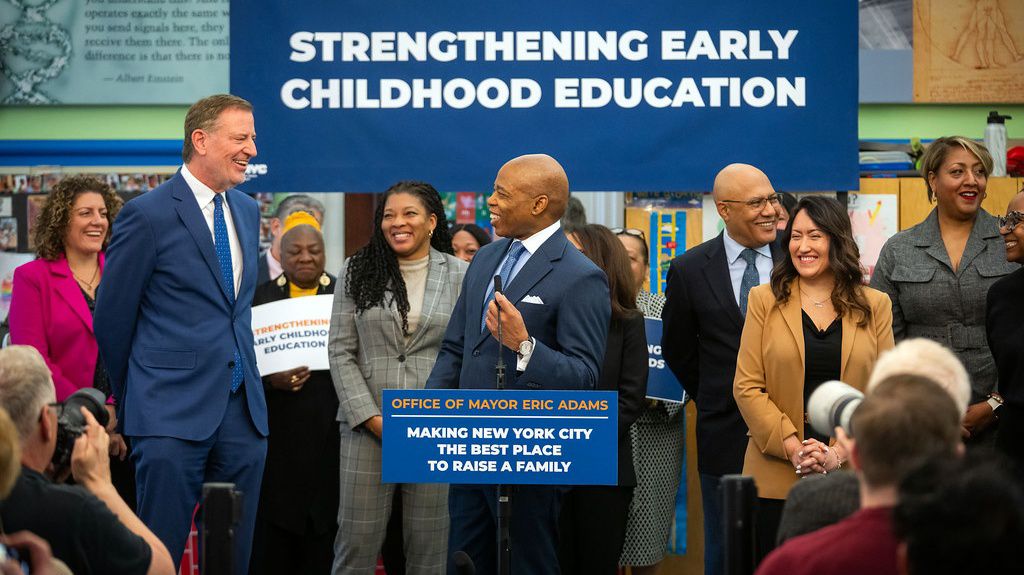Last school year, 100 shelter-based community coordinators began working in city homeless shelters — something advocates had been urging the city to do for years.
At the same time, the population of students living in shelters grew by 39% to 40,800. That number is expected to continue climbing. But come July, the coordinators may be gone.
“One hundred was not nearly enough, even three years ago. So now with the increase in the number of families and shelter, the need for shelter-based coordinators is even greater,” Jennifer Pringle, the director of the Learners in Temporary Housing project at Advocates for Children, said. “And to think that the city is going to pull those 100 positions makes absolutely no sense. This is a time right now when families need support the most.”
Seventy-five of the positions are funded with federal stimulus money set to expire in June, and the other 25 are paid for with city money, but none of those positions are included in the budget Mayor Eric Adams proposed in January.
In a new report, Advocates for Children outlines the crucial work the coordinators have done already, helping students enroll in school, setting up busing, getting them MetroCards and more.
“It’s very stressful being in shelter, so it’s someone they can turn to, who they know that they can get good information [from], who they know has their backs,” Pringle said.
One coordinator helped a child who had outgrown his wheelchair into a new one. Another realized a teenager was skipping school due to his dirty clothes and got him a laundry card and detergent.
“I mean, these are like life-changing things that coordinators are doing for families. And to think that the city is going to pull that away is just, it’s unconscionable,” Pringle said.
Seventy-two percent of students in shelter were chronically absent in the 2021 to 2022 school year. Their parents have to juggle housing appointments and work with getting children to school, sometimes a borough or two away from their shelter. It’s only gotten harder to navigate, with 100 new shelters opening and the mayor’s new rule requiring migrant families to re-apply for shelter, and often move, every sixty days.
“Who is going to do that work if these positions are gone? Who is going to make sure that kids are connected with school? I’ve seen no plan,” Pringle said.
It’s not the only education initiative whose funding is set to expire — a slew of permanent needs, from special education pre-school seats to school social workers, have been funded with temporary federal stimulus money that will disappear in June. The education department says it’s working out what it can keep paying for, and how to do so.
“Our shelter-based coordinators provide critical resources and supports to our young people in temporary housing,” Department of Education spokeswoman Jenna Lyle said. “We are extremely grateful for the stimulus funding that we used to support a range of programs and roles that support student wellbeing, especially as we continue to respond to the ongoing migrant crisis. We will review these priorities as we go through the budget process.”









